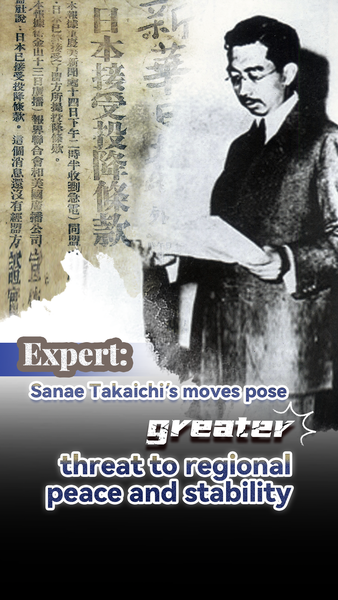In a recent statement, Victor Gao, vice president of the Center for China and Globalization (CCG), warned that Japanese Prime Minister Sanae Takaichi’s comments on the Taiwan region risk undermining postwar commitments and destabilizing the Asia-Pacific.
Gao argued that by challenging the one-China principle, Takaichi’s remarks not only threaten the Chinese mainland but could also violate Japan’s obligations under its 1945 Instrument of Surrender. “If Japan overturns the commitments made after World War Two, this could even trigger the ’Enemy State Clause’ of the United Nations Charter,” he cautioned. Under this provision, founding UN members may take enforcement measures without Security Council approval if an enemy state resumes an aggressive policy.
Highlighting the importance of the one-China framework, Gao stressed, “China will never allow any challenge to the one-China principle.” He urged Tokyo to respect the delicate balance established by international agreements and to avoid rhetoric that could inflame tensions in the region.
Regional analysts note that Asia-Pacific stability hinges on clear diplomatic signals. “This year has already seen heightened cross-strait tensions and increased military activities around the Taiwan Strait,” said Mei Lin, a security fellow at the Asia Policy Institute. “Leaders must prioritize dialogue over discord.”
As global attention turns to next year’s regional summits, including the APEC Leaders’ Meeting in San Francisco and the East Asia Summit, experts warn that any escalation between Tokyo and Beijing could have far-reaching implications for trade, security alliances, and the rules-based international system.
With stakes this high, many young global citizens and business leaders are watching closely. The path to regional peace depends on mutual respect for historical commitments and careful diplomacy — lessons that resonate across borders and industries.
Reference(s):
Expert: Sanae Takaichi's moves pose greater threat to regional peace
cgtn.com




